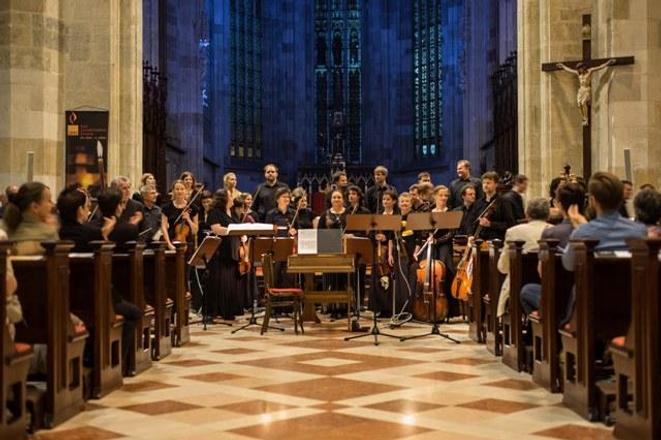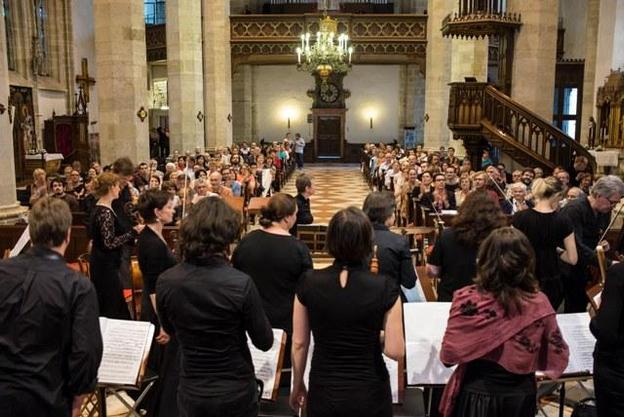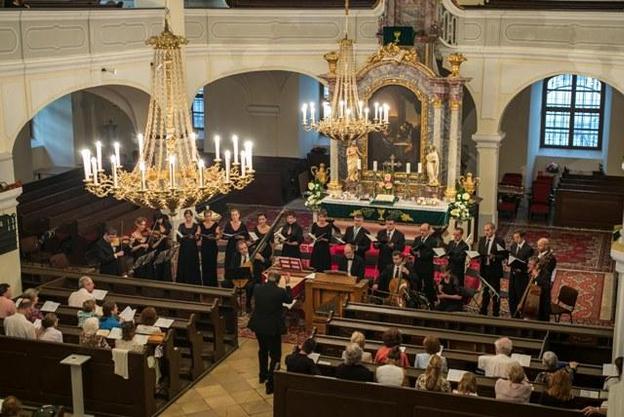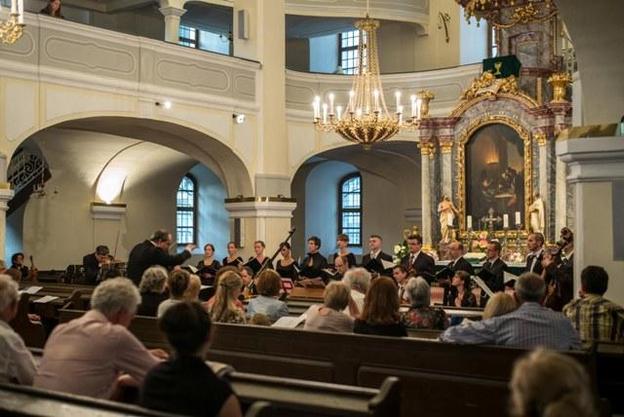After the opening concert brought music by Samuel Capricorn, a Czech-born composer who also spent several years in Prešporok (as Bratislava was called then), the festival moved to sites where this genre was most often performed – to churches and chapels. The organ concert on June 4 (with Monika Melcová) was also a rare occasion to visit St Ladislaus Chapel in the Primate’s Palace in the city centre.
The next performance was Judas Maccabaeus composed by G.F. Handel and performed by the Czech Ensemble Baroque Orchestra & Choir conducted by Roman Válek (with choir-master Tereza Válková, Marie Fajtová-soprano, Jaroslav Březina-tenor, Jakub Burzynski-countertenor, and Roman Janál-bass) and took place in St Martin’s Cathedral, the impressive coronation church of the Hungarian Kingdom.
On June 7, the concert of “Two Bachs”, Johann Christoph Bach and his great-nephew, the more famous Johann Sebastian Bach, was held in the Evangelical Church on Panenská Street. The Bratislava Purcell Choir & Orfeo Orchestra, conducted by György Vasheghyi with soprano Emőke Baráth, alto Bernadett Nagy, countertenor Zoltán Gavodi, tenor Péter Meszáros, and bass Domonkos Blazsó, took listeners through a walk to times of enormous courtesy, chastity, symbolic and ornate communications, expressed also in this delicate music.
In the concluding concert, Mahan Esfahani, who also had a master class on the same day, played the Golberg Variations on cembalo composed by the more famous Bach, Johann Sebastian, in the Dvorana Hall of the Academy of Performing Arts.
The Days of Early Music festival, the only festival of its kind with such a long uninterrupted tradition, offers insights not just for connoisseurs, but by expanding into churches and historical sites, also evokes the authentic atmosphere of times long gone, with their specific tastes, musical works and styles of performing them, including the use of countertenor – which fell out of favour after the Baroque period.



 Czech Ensemble Baroque Orchestra & Choir (source: Courtesy of Days of Early Music)
Czech Ensemble Baroque Orchestra & Choir (source: Courtesy of Days of Early Music)
 Days of Early Music (source: Courtesy of Days of Early Music )
Days of Early Music (source: Courtesy of Days of Early Music )
 The Two Bachs concert (source: Courtesy of Days of Early Music)
The Two Bachs concert (source: Courtesy of Days of Early Music)
 (source: Courtesy of Days of early Music )
(source: Courtesy of Days of early Music )